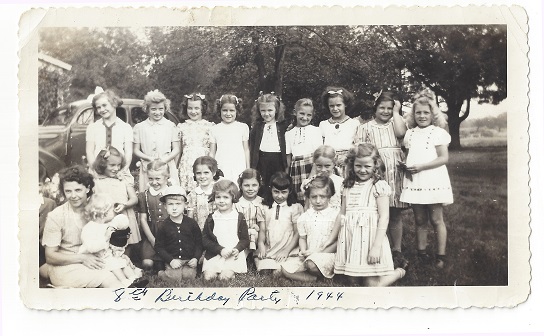Submitted by Dennis Uhlman

In this installation of an occasional series, Westborough resident Dennis Uhlman interviewed longtime Westborough High School teacher Charlotte Spinney
Westborough – For those of us living in Westborough in 2017, life is busy. It is hard to imagine that this town was once something other than the hurricane of activity that roars through the rotary each day, leaving us with the suspicion that time is cleverly finding a way to sneak by faster and faster. I often think about, maybe even wish for, the life I see in my grandparents’ grainy black and white high school pictures. My grandparents’ Westborough of the 1950s was far from perfect, especially for those cast to the fringes of society for any number of reasons. Despite this reality, have we jumped too far ahead of ourselves? Aren’t some of us stuck in a perpetual passing lane and running desperately low on fuel? Maybe, we have lost some common shared values that were, in part, responsible for the quality of life many of us live today.
To get some perspective, I searched for someone who has made a life in this town and invested energy into this community’s progress. It didn’t take long for my search to land on Charlotte Spinney, or Ms. Spinney, as she was known for the 41 years she taught at Westborough High School.
Ms. Spinney’s parents came to Westborough in the late 1920s, both parents arriving in the small town to live with family that had already settled here. Ms. Spinney’s father worked at Bay State Abrasives, the sprawling manufacturing company that occupied the Bay State Commons land of today and employed much of the town. Ms. Spinney, like all other children in the town in the 1940s and 50s went to the modest Harvey School for grades one and two, before transferring to the Eli Whitney School for the remaining grades leading up to high school. Grades seven through twelve were spent in the Forbes Building where the police station sits today. Her graduating class was one of 52 students.
High school life for teenagers in Westborough in the fifties was filled with class activities, football and basketball games, and I have to imagine, some boundary pushing endeavors common to the teenager. The town, as Ms. Spinney describes it, was dramatically less diverse with the majority of the town white Protestant and Catholic families. In addition, some Jewish families were beginning to arrive and make a home here. According to Ms. Spinney, teachers such as Ruth Wadleigh, Mary Conroy, and Sally Gibbons, a name well-known even today through our middle school, had a significant impact on her and were gifted in their craft.
While looking at Ms. Spinney’s answers to my questions, I began to cautiously conclude that my feelings of nostalgia might be somewhat valid. When I asked her what the largest change she noticed was over her tenure as a teacher and now her time as an active citizen, she responded that besides the obvious changes in diversity and technology, she noticed an increasing burden put on students over the years to excel in school and get into a top ranked universities. While opportunity and academics were important in the 1950s, Ms. Spinney remembers that she was simply expected to attend and finish high school, and try the best she could academically. I sensed some concern from this veteran teacher that we have created an atmosphere where kids are often made to feel like a failure. I was also struck by how respect for teachers was instilled in her by her hard-working parents, who appreciated the town’s educators. Ms. Spinney frankly noted, “If we got in trouble at school, there was worse at home.”
Charlotte Spinney is not in any way unaware of the progress made since she graduated school in the 1950s. She explained that while growing up, the options for women entering the workforce were often restricted to careers as a nurse, secretary, or teacher. In regards to the diversity that is now a reality in our town, Ms. Spinney noted that, “since we are all children of immigrants,” she has found this change welcome. However, I noticed in her answers maybe some longing for parts of the world she grew up in – a complex response of gray in a world I often want to paint black and white. Our town is no longer the modest manufacturing town of Ms. Spinney’s youth. While progress cannot be stopped, if my hunch is correct, many in her generation deeply feel the loss of some principles and values passed down to them from parents who had lived through difficult depression years. As a student of history though, Ms. Spinney reminded me that, “every generation faces challenges.” In other words, she reminded me that nothing is ever perfect and that each generation has unique challenges to face.
The last questions I asked Ms. Spinney was if she had any advice for students today? She answered with the wisdom of a veteran educator, “ to the students, make use of all that is offered and make a sincere effort to do what your teachers ask you.” Additionally, she encouraged students to take an interest in and serve our community. A fitting answer, I thought, from a beloved teacher who has never stopped serving this town her parents arrived in so long ago with nothing but a strong work ethic and a desire to leave a legacy.















